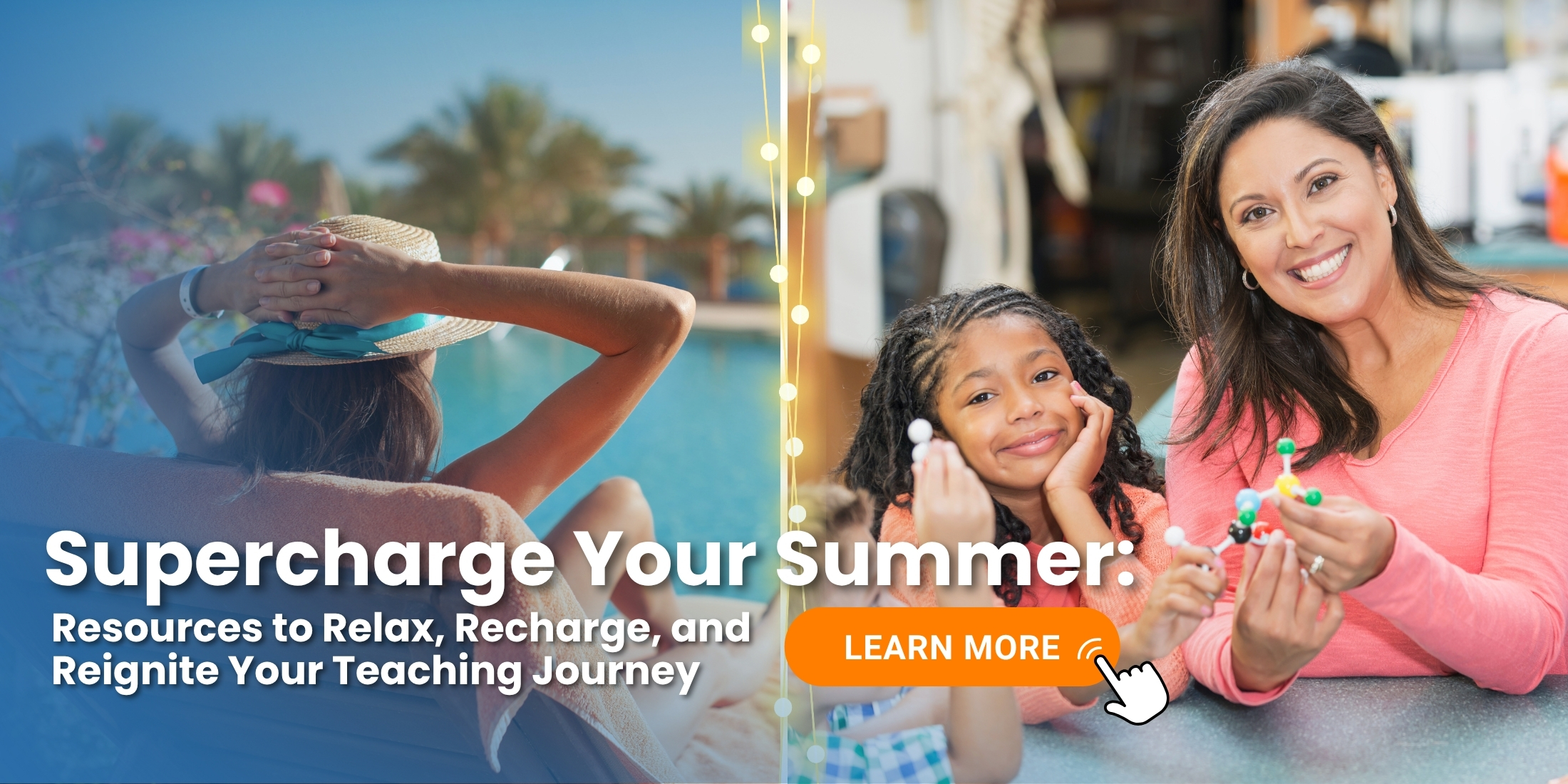June Research Roundup: Fresh STEM News and Resources to Kick Off Summer Learning
June Research Roundup: Fresh STEM News and Resources to Kick Off Summer Learning

As school wraps up and summer begins, it's the perfect time for educators to recharge, and reimagine what's possible in science classrooms next year.
With OpenSciEd K-12 now a reality, Activate Learning is excited to support this momentum by curating innovative tools and strategies for classrooms at every level. Whether you’re planning professional learning, refreshing curriculum, or just want inspiration for the next school year, this edition of the Research Roundup is packed with recent STEM news, ideas, and free classroom-ready resources to energize your teaching journey.
Recent STEM News & Discoveries
- Supermassive Black Holes Could Act as Natural Supercolliders
via Phys.org
New research suggests that spinning supermassive black holes may function as natural particle accelerators, generating collision energies even higher than those produced on Earth. These cosmic events could create exotic particles, including possible dark matter, that might eventually be detected by Earth-based observatories. A fascinating way to connect real-world space science to classroom topics like mass, energy, and gravity! [LEARN MORE] - Probiotics Could Help Save Endangered Coral Species
via ScienceNews.org
Scientists have found that a mix of beneficial bacteria, essentially a probiotic treatment, can help diseased great star corals recover and resist further infection. This breakthrough offers hope for endangered reefs and opens up classroom conversations around microbiology, ecosystems, and climate resilience. It’s a great example of life science in action, with strong ties to environmental and sustainability standards. [LEARN MORE] - Fossils Reveal Sauropod Dinosaurs Had a Surprisingly Varied Diet
via The New York Times
New fossil analysis shows that some sauropods, long believed to be strict vegetarians, may have had more varied diets, possibly including fungi or crustaceans. This discovery challenges long-held assumptions and offers a great entry point for classroom discussions about fossil evidence, adaptation, and how scientific understanding evolves with new data. [LEARN MORE]
Science Teaching Resources
- NOAA Data in the Classroom (Grades 6-12) This NOAA initiative provides NGSS-aligned, interactive modules using real-time ocean and climate data. Students can explore key environmental phenomena like ocean acidification, sea level rise, and harmful algal blooms through mapping, graphing, and data interpretation activities. Each module includes teacher guides, data tools, and formative assessments designed for middle and high school use.
- Frontiers for Young Minds (Grades 3-12)
Frontiers for Young Minds is a peer-reviewed, open-access science journal where articles are written by scientists and then reviewed by kids with the help of science mentors. This unique structure ensures the content is both scientifically accurate and accessible to younger readers. The articles span disciplines including neuroscience, astronomy, health, earth science, biodiversity, engineering, and more. - NASA’s Eyes on the Solar System (Grades 6-12)
NASA’s Eyes on the Solar System is an interactive 3D visualization tool that lets students explore planets, moons, asteroids, comets, and spacecraft missions in real time. Users can “fly along” with active missions like Perseverance on Mars or the Voyager spacecraft venturing into interstellar space, zoom in on surface features, and simulate planetary orbits across time.
Embrace the Summer of Science: Explore, Discover, and Inspire
Whether you’re exploring real-time Earth data with NOAA, researching phenomena through PhET, or journeying through space with NASA’s Eyes on the Solar System, these free resources empower both teachers and students to make science learning vibrant and meaningful all year round. At Activate Learning, we’re excited to support your OpenSciEd teaching journey with innovative, accessible tools that bring the excitement of discovery right into your classroom, or wherever your learning takes you this summer. Here’s to a season full of exploration, inquiry, and inspiration!
* * * * * * *

